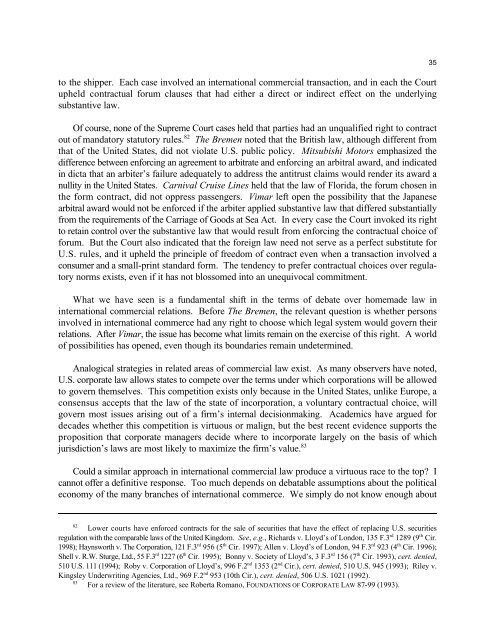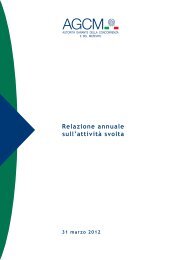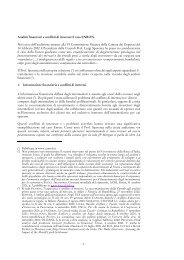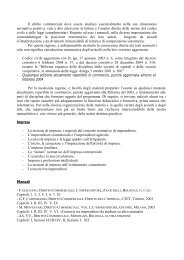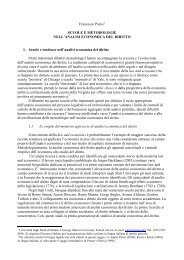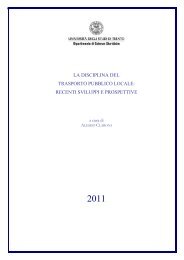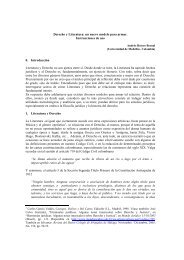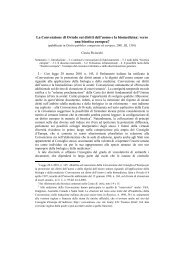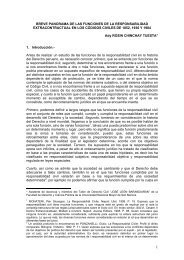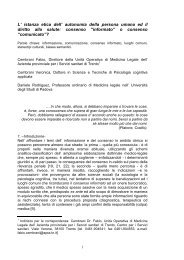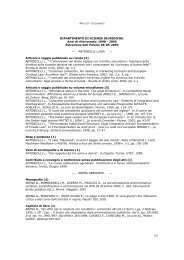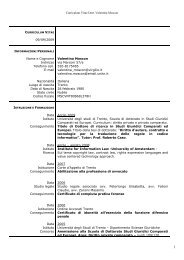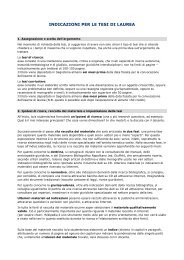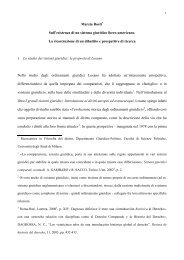The Futility of Unification and Harmonization in International ...
The Futility of Unification and Harmonization in International ...
The Futility of Unification and Harmonization in International ...
You also want an ePaper? Increase the reach of your titles
YUMPU automatically turns print PDFs into web optimized ePapers that Google loves.
to the shipper. Each case <strong>in</strong>volved an <strong>in</strong>ternational commercial transaction, <strong>and</strong> <strong>in</strong> each the Courtupheld contractual forum clauses that had either a direct or <strong>in</strong>direct effect on the underly<strong>in</strong>gsubstantive law.Of course, none <strong>of</strong> the Supreme Court cases held that parties had an unqualified right to contract82out <strong>of</strong> m<strong>and</strong>atory statutory rules. <strong>The</strong> Bremen noted that the British law, although different fromthat <strong>of</strong> the United States, did not violate U.S. public policy. Mitsubishi Motors emphasized thedifference between enforc<strong>in</strong>g an agreement to arbitrate <strong>and</strong> enforc<strong>in</strong>g an arbitral award, <strong>and</strong> <strong>in</strong>dicated<strong>in</strong> dicta that an arbiter’s failure adequately to address the antitrust claims would render its award anullity <strong>in</strong> the United States. Carnival Cruise L<strong>in</strong>es held that the law <strong>of</strong> Florida, the forum chosen <strong>in</strong>the form contract, did not oppress passengers. Vimar left open the possibility that the Japanesearbitral award would not be enforced if the arbiter applied substantive law that differed substantiallyfrom the requirements <strong>of</strong> the Carriage <strong>of</strong> Goods at Sea Act. In every case the Court <strong>in</strong>voked its rightto reta<strong>in</strong> control over the substantive law that would result from enforc<strong>in</strong>g the contractual choice <strong>of</strong>forum. But the Court also <strong>in</strong>dicated that the foreign law need not serve as a perfect substitute forU.S. rules, <strong>and</strong> it upheld the pr<strong>in</strong>ciple <strong>of</strong> freedom <strong>of</strong> contract even when a transaction <strong>in</strong>volved aconsumer <strong>and</strong> a small-pr<strong>in</strong>t st<strong>and</strong>ard form. <strong>The</strong> tendency to prefer contractual choices over regulatorynorms exists, even if it has not blossomed <strong>in</strong>to an unequivocal commitment.What we have seen is a fundamental shift <strong>in</strong> the terms <strong>of</strong> debate over homemade law <strong>in</strong><strong>in</strong>ternational commercial relations. Before <strong>The</strong> Bremen, the relevant question is whether persons<strong>in</strong>volved <strong>in</strong> <strong>in</strong>ternational commerce had any right to choose which legal system would govern theirrelations. After Vimar, the issue has become what limits rema<strong>in</strong> on the exercise <strong>of</strong> this right. A world<strong>of</strong> possibilities has opened, even though its boundaries rema<strong>in</strong> undeterm<strong>in</strong>ed.Analogical strategies <strong>in</strong> related areas <strong>of</strong> commercial law exist. As many observers have noted,U.S. corporate law allows states to compete over the terms under which corporations will be allowedto govern themselves. This competition exists only because <strong>in</strong> the United States, unlike Europe, aconsensus accepts that the law <strong>of</strong> the state <strong>of</strong> <strong>in</strong>corporation, a voluntary contractual choice, willgovern most issues aris<strong>in</strong>g out <strong>of</strong> a firm’s <strong>in</strong>ternal decisionmak<strong>in</strong>g. Academics have argued fordecades whether this competition is virtuous or malign, but the best recent evidence supports theproposition that corporate managers decide where to <strong>in</strong>corporate largely on the basis <strong>of</strong> whichjurisdiction’s laws are most likely to maximize the firm’s value. 83Could a similar approach <strong>in</strong> <strong>in</strong>ternational commercial law produce a virtuous race to the top? Icannot <strong>of</strong>fer a def<strong>in</strong>itive response. Too much depends on debatable assumptions about the politicaleconomy <strong>of</strong> the many branches <strong>of</strong> <strong>in</strong>ternational commerce. We simply do not know enough about3582Lower courts have enforced contracts for the sale <strong>of</strong> securities that have the effect <strong>of</strong> replac<strong>in</strong>g U.S. securitiesrdthregulation with the comparable laws <strong>of</strong> the United K<strong>in</strong>gdom. See, e.g., Richards v. Lloyd’s <strong>of</strong> London, 135 F.3 1289 (9 Cir.rd th rd th1998); Haynsworth v. <strong>The</strong> Corporation, 121 F.3 956 (5 Cir. 1997); Allen v. Lloyd’s <strong>of</strong> London, 94 F.3 923 (4 Cir. 1996);rd th rd thShell v. R.W. Sturge, Ltd., 55 F.3 1227 (6 Cir. 1995); Bonny v. Society <strong>of</strong> Lloyd’s, 3 F.3 156 (7 Cir. 1993), cert. denied,ndnd510 U.S. 111 (1994); Roby v. Corporation <strong>of</strong> Lloyd’s, 996 F.2 1353 (2 Cir.), cert. denied, 510 U.S. 945 (1993); Riley v.ndK<strong>in</strong>gsley Underwrit<strong>in</strong>g Agencies, Ltd., 969 F.2 953 (10th Cir.), cert. denied, 506 U.S. 1021 (1992).83For a review <strong>of</strong> the literature, see Roberta Romano, FOUNDATIONS OF CORPORATE LAW 87-99 (1993).


